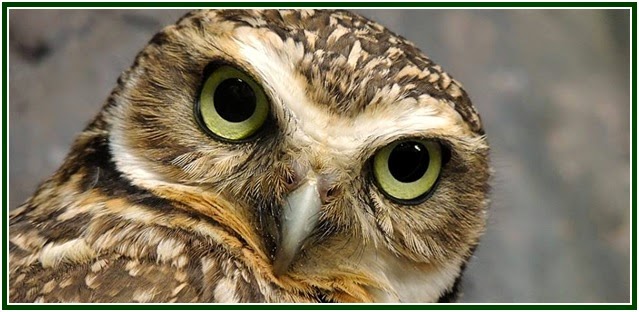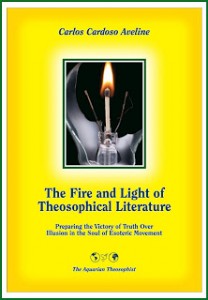
A Selection of Sayings From Gibran,
With a Few Theosophical Commentaries
Kahlil Gibran

0000000000000000000000000000000
An Editorial Note:
The following article presents
selected sentences from the book
“Spiritual Saying of Kahlil Gibran”,
translated from the Arabic and
edited by Anthony Rizcallah Ferris,
Bantam Books, NY, USA, 1962, 114 pp.
The sayings are reproduced in
bold type. The pages from which
they were selected are indicated
in parenthesis at the end of each
one. In most cases I have added short
commentaries to them – always in italics.
(Carlos Cardoso Aveline)
0000000000000000000000000000000000000000000000
* As one’s gifts increase, his friends decrease. (1)
The rule applies to personal or lower-self friendships.
* I discovered the secret of the sea in meditation upon the dewdrop. (1)
For each drop contains the ocean.
* If you are poor, shun association with him who measures men with the yardstick of riches. (2)
* I prefer to be a dreamer among the humblest, with visions to be realized, than lord among those without dreams and desires. (2)
* Of life’s two chief prizes, beauty and truth, I found the first in a loving heart and the second in a laborer’s hand. (2)
Beauty is often invisible to the physical eye.
* People speak of plague with fear and tremor, yet of destroyers like Alexander and Napoleon they speak with ecstatic reverence. (2)
True greatness is inseparable from nonviolence.
* I saw them eating and I knew who they were. (2)
One can learn a lot by observing one’s own attitude towards food.
* Some hear with their ears, some with their stomachs, some with their pockets; and some hear not at all. (5)
And if we ourselves make sure we can hear well in the first place, we may be able to help others listen.
* If reward is the goal of religion, if patriotism serves self-interest, and if education is pursued for advancement, then I would prefer to be a non-believer, a non-patriot, and a humbly ignorant man. (5)
Wisdom dwells in simplicity.
* I have yet to meet an ignorant man whose roots are not embedded in my soul. (6)
All things human relate to me.
* By adornment one acknowledges his ugliness. (6)
* The partition between the sage and the fool is more slender than the spider web. (7)
It takes humbleness, and respect for truth, to be able to see foolishness in oneself.
* Three things I like in literature: rebellion, perfection, and the abstract. And the three things I hate in it are imitation, distortion, and complexity. (8)
* If you choose between two evils, let your choice fall on the obvious rather than the hidden, even though the first appears greater than the second. (8-9)
Show your failures and hide your accomplishments, as Helena Blavatsky taught in a masterpiece of modern esoteric philosophy, “Isis Unveiled” (Theosophy Co., Vol. I, pp. 599-600).
* Deliver me from him who does not tell the truth unless he stings; and from the man of good conduct and bad intentions; and from him who acquires self-esteem by finding fault in others. (9)
* Does the song of the sea end at the shore or in the hearts of those who listen to it? (9)
The music of the ocean can also start in one’s heart.
* The supreme state of the soul is to obey even that against which the mind rebels. And the lowest state of the mind is to revolt against that which the soul obeys. (10)
It all depends on antahkarana, the invisible bridge to one’s immortal soul, the individual aspect of Jacob’s ladder (Genesis 28: 10-12).
* If you wish to see the valleys, climb to the mountain top; if you desire to see the mountain top, rise into the cloud; but if you seek to understand the cloud, close your eyes and think. (11)
The center of the universe is in your heart.
* As between the soul and the body there is a bond, so are the body and its environment linked together. (12)
The soul is present within and without.
* Be not contented with little; he who brings to the springs of life an empty jar will return with two full ones. (13)
However, giving is better than expecting to receive. To use one’s will is good; desire provokes pain.
* Our souls traverse spaces in Life which are not measurable by Time, that invention of man. (15)
Lineal time is limited; eternal Duration is present at each and every moment.
* Poetry is the secret of the soul; why babble it away in words? (15)
Wisdom is secret, whether one uses words and talks about it or not. And some words may evoke the silence of the ocean.
* Poetry is the understanding of the whole. How can you communicate it to him who understands but the part? (15)
By telling him the whole is contained in the part.
* Poetry is a flame in the heart, but rhetoric is flakes of snow. How can flame and snow be joined together? (15)
Both fire and ice need transcendence: they are one in the territory of silence.
* Love is a trembling happiness. (17)
And it is also a lasting, unconditional flow from one’s heart. It consists of an eternal fact, precariously wrapped in impermanent forms.
* You progress not through improving what has been done, but reaching toward what has yet to be done. (17)
One must preserve and improve good things done, and make good things that have never been made so far.
* Keep me from the wisdom that does not weep, and the philosophy that does not laugh, and the pride that does not bow its head before a child. (18)
* Sayings remain meaningless until they are embodied in habits. (27)
Good habits are the secret to good karma.
* Humanity is divinity divided without and united within. (27)
Universal brotherhood is a law and a fact for souls.
* Our worst fault is our preoccupation with the faults of others. (29)
The faults of others are our concern insomuch as they stimulate our own, or the faults of those we care about.
* Poetry is a flash of lightning; it becomes mere composition when it is an arrangement of words. (29)
However, the flash of lightning is as necessary in writing as the slow energy of raining. The careful arrangement of words includes a geometrical intuition and is no heartless activity.
* No one believes the sincere except the honest. (30)
Because perception depends on an affinity between the observer and the observed.
* He who stares at the small and near images will have difficulty in seeing and distinguishing those that are great and remote. (34)
Individuals who suffer from philosophical myopia refuse to see any larger pictures.
* We are all warriors in the battle of Life, but some lead and others follow. (34)
Still, responsibility is mainly individual.
* Souls are fires whose ashes are the bodies. (35)
True, especially at the end of an incarnation. During one’s lifetime the body is the wood, and fire is life and intelligence.
* He who conceals his intention behind flowery words of praise is like a woman who seeks to hide her ugliness behind cosmetics. (35)
And both facts are not too difficult to find in the present age.
* If I knew the cause of my ignorance, I would be a sage. (35)
Every learner must identify and confront his subconscious feelings of resistance to change. He has to fight and defeat his own boycott to altruistic wisdom. In that, honesty and courage are equally necessary.
* The butterfly will continue to hover over the field and the dewdrops will still glitter upon the grass when the pyramids of Egypt are levelled and the skyscrapers of New York are no more. (35)
A living flexibility endures, whereas rigid structures are short-lived.
000
On the role of the esoteric movement in the ethical awakening of mankind during the 21st century, see the book “The Fire and Light of Theosophical Literature”, by Carlos Cardoso Aveline.

Published in 2013 by The Aquarian Theosophist, the volume has 255 pages and can be obtained through Amazon Books.
000